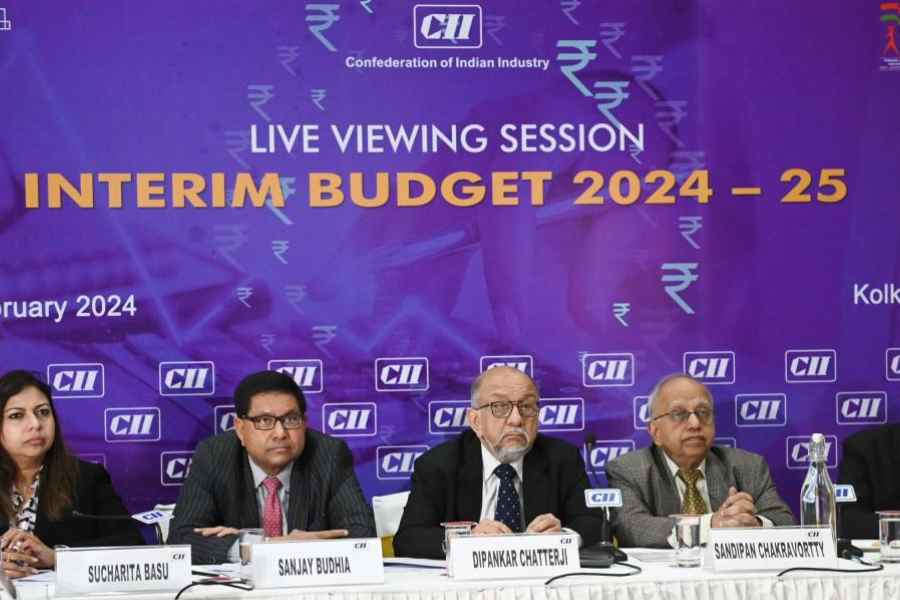The finance minister is to be commended for presenting a visionary, non-populist and fiscally prudent budget before the general elections.
These are the critical ingredients for fortifying long-term macroeconomic stability and for Bharat becoming “Vikshit” by 2047.
Strictly adhering to the fiscal glide path announced last year, the budget brings down the fiscal deficit in 2023-24 (RE) to 5.8 per cent of GDP, not only lower than the budget estimates but also lower than the expectations of most commentators.
Next year’s fiscal deficit target of 5.1 per cent of GDP is praiseworthy. The GDP estimates announced by the NSO in January confirm India’s high growth trajectory and the finance minister is appropriately using the high GDP growth rate period to lower the deficit.
The lowering of the deficit has been achieved through realistic estimates of receipts
especially of tax collection along with rationalising non-productive expenditures like subsidies.
And we believe there are good chances that actual tax collection will exceed the estimates given the robust tax collections seen in the first nine months of current fiscal.
High growth in last three years has been the result of many reforms and initiatives launched by the government, added by the rapid expansion of government capex.
This year too, capex is to be increased by 11.1 per cent compared to 2023-24 (BE), but if seen in comparison to 2023-24 (RE), the increase is close to 17 per cent.
Government capex has helped crowd-in private investment whose signs are now clearly visible.
The announcement of Rs 1 lakh crore corpus to provide 50 years’ loan at low or nil interest rate will be a game-changer not only for industry but for the entire country.
Innovation is the main driver of growth in the 21st century, but unfortunately, India has been lagging many of our peers in terms of expenditure on R&D.
The new fund can help the country become a new epicentre of global R&D. One hallmark of the government has been growth with inclusivity and sustainability. This was visible in schemes like roof-top solarisation, increasing the target for Lakhpati Didi, additional two crore houses under the PM Awas Yojana (Grameen), and expansion of Ayusman Bharat.
Overall, the finance minister has achieved the task of continuing the policy direction and providing a credible fiscal and development path in the budget.
We would like to echo the hopeful message of the hon’ble minister that the next five years will be years of unprecedented development, and golden moments to realise the dream of developed India @ 2047.
Chandrajit Banerjee is director-general of the Confederation of Indian Industry











